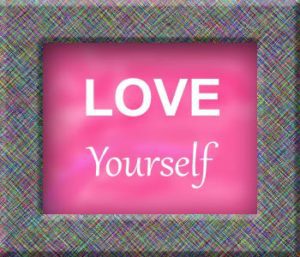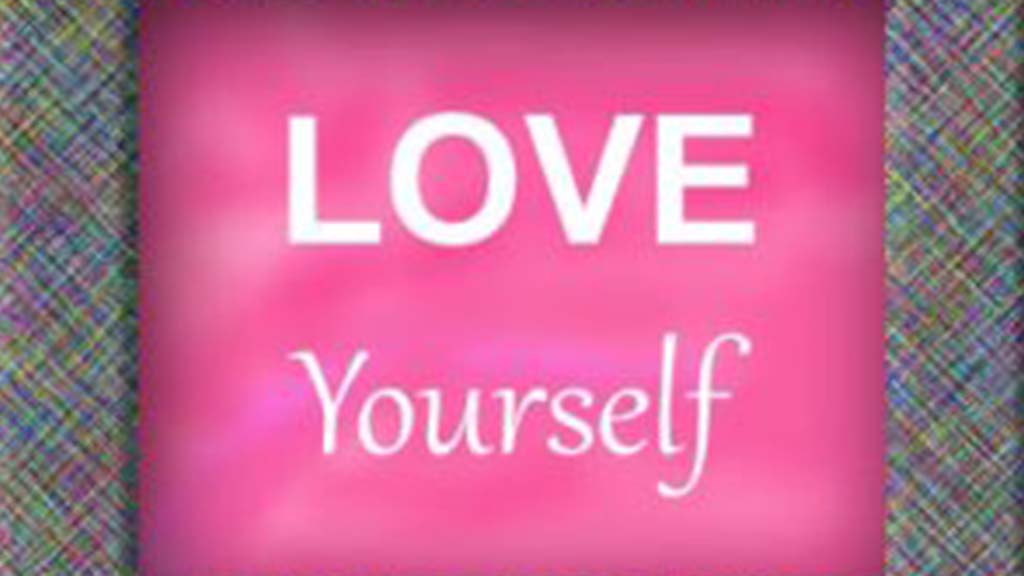By Shelley Abrams
February is often thought of as the month of the heart or the month of love. And of course when you think of February and love you think Valentines and relationships, romantic ones in particular. Many believe that the most important relationships in their lives are with their significant other, or perhaps their children. But is that truly the most important relationship?


The most important relationship anyone can have is with themselves. After all, you are with you 24 hours a day, 7 days a week, 365 days a year. You are never without yourself. So wouldn’t it make sense then, that if the most important relationship you have is with yourself, you should love yourself, your true inner self, first above all else? I’m not talking about ego or self-esteem as much as I am talking about acceptance of who we and all our unique selves really are! This means taking all of you – your quirks, faults, traits, behaviors, outward appearance and inner heart and soul, and love it unconditionally. It does not mean changing who we are to fit the image of who we (or others) believe we should be.
Hard? You bet. But critical. How can you expect to truly love others wholeheartedly and unconditionally if you first cannot love yourself? And how can you truly be happy if you don’t accept who you are – all of you?
I recently read an article in Psychology Today by Dr. Russell Grieger on Unconditional Self-Acceptance (Feb 19th, 2013) who had a terrific analogy. Dr. Grieger talked about getting a crate of oranges and when you eagerly pulled up an orange out of the crate you saw that it was rotting. So you threw out the whole crate of oranges instead of picking out only the bad ones and tossing those. His point? We often do this to ourselves. In his words, “We tend to damn both the rotten things we do – our mistakes, flaws, and failures – and also our whole selves. This pernicious proclivity to go from damning what we do to damning who we are accounts for more human unhappiness – anxiety, guilt, insecurity, jealousy, depressed, and anger – than all other factors combined”. In other words, “they judged their whole self by one orange.” He goes on to say that unconditional self-acceptance is understanding that you (your lifetime accumulation of deeds and traits) are the whole crate of oranges, with some bad and some good ones. You may not like the bad oranges that you come across through your own actions or thoughts, but you don’t beat yourself up about it, you toss them, accept them as the mistakes they are and move on!
Unconditional love and self-acceptance also means being your own best friend instead of your own worst enemy. It means being comfortable in your own skin – with who you really are – instead of worrying about who other people think you are or want you to be. It doesn’t mean not making changes to better yourself, but if you are making changes, examine your motives. Are you striving to better yourself, to be who you really are, because you accept and love yourself and want to offer the world more of your true self, or are you doing it because you want love and approval from others, the latter coming from a place of ego-centric love rather than true unconditional self-acceptance?
Once we accept and love ourselves unconditionally, we can go about sharing our love with the world around us. We do that and our happiness and that of the world, increases.
“Love yourself – accept yourself – forgive yourself – and be good to yourself, because without you the rest of us are without a source of many wonderful things.”
~Leo Buscaglia, Love
So how do we go about loving ourselves unconditionally, accepting our true selves? We can do it by practicing what in Buddhism is known as the four states of mind (Brahma Viharas or The Four Immeasurables), first and foremost toward ourselves and then to all other beings we share our planet with:
Lovingkindness (metta) – wanting others to be happy; good-natured, kind-hearted feelings and acts meant to foster acceptance and happiness; examples include smiling at others for no reason, sharing a hug, giving something to someone without expectation of anything in return
Compassion (karuna) – wanting others to be free from suffering; relieve suffering and lighten sorrow, a sense of urgency to help others; examples include giving a care package to someone who is homeless, helping someone out of a bind by offering a helping hand, being a comforting shoulder to cry on for someone who is mourning
Joy (mudita) – being happy with someone’s fortune or happiness; bliss and happiness for all sentient beings; a positive mental attitude which is beneficial for oneself and others; also known as karma; examples include the pleasure you feel when watching children dance to their own heartbeat, being excited for someone’s achievement, seeing the beauty in nature
Equanimity (upekkha) – a tranquil state of mind where all things (beings) are equal; feeling fully connected, oneness, without attachment
The above is best summed up by Thich Nhat Hahn in his meditation titled “Old path white clouds”:


“Practice loving kindness to overcome anger. Loving-kindness has the capacity to bring happiness to others without demanding anything in return. Practice compassion to overcome cruelty. Compassion has the capacity to remove the suffering of others without expecting anything in return. Practice sympathetic joy to overcome hatred. Sympathetic joy arises when one rejoices over the happiness of others and wishes others well-being and success. Practice non-attachment to overcome prejudice. Non-attachment is the way of looking at all things openly and equally. This is because that is. Myself and others are not separate. Do not reject one thing only to chase after another. I call these the four immeasurables. Practice them and you will become a refreshing source of vitality and happiness for others.”
So for Valentine’s Day, remember to get yourself a box of chocolates!
With Love,
Shelley….

